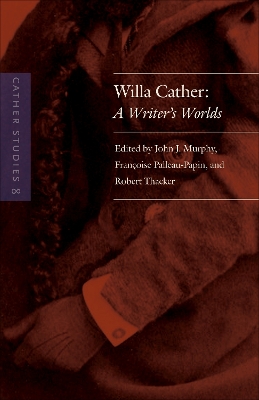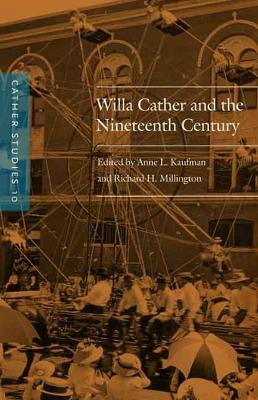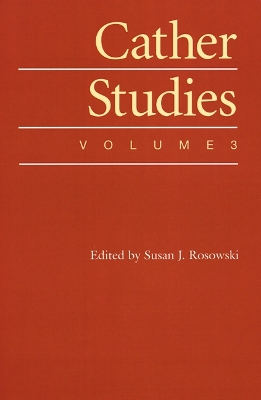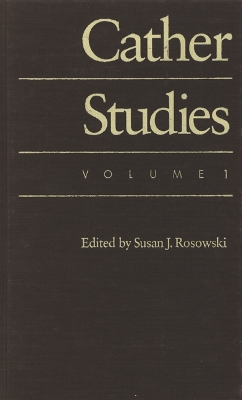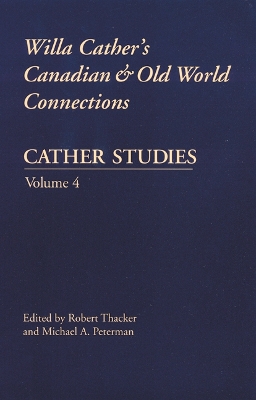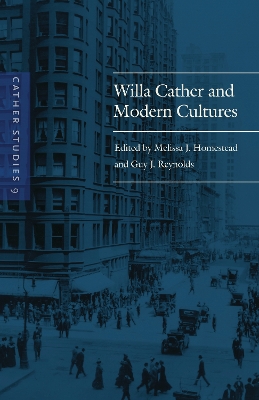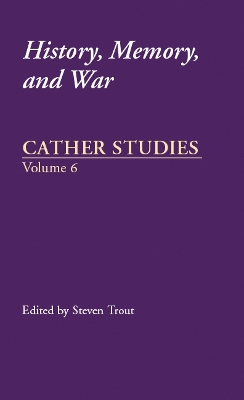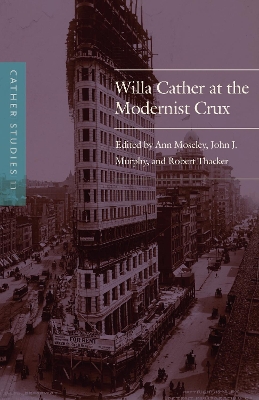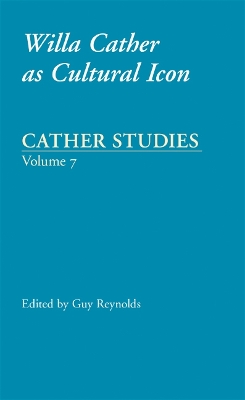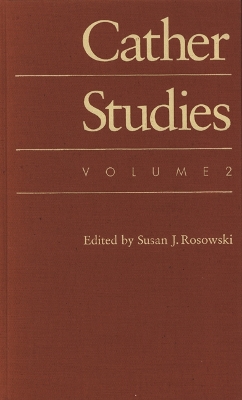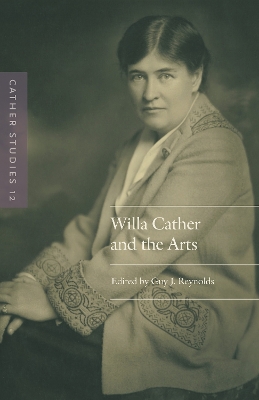Cather Studies
12 total works
Willa Cather and the Nineteenth Century explores, with textual specificity and historical alertness, the question of how the cultures of the nineteenth century—the cultures that shaped Willa Cather’s childhood, animated her education, supplied her artistic models, generated her inordinate ambitions, and gave embodiment to many of her deeply held values—are addressed in her fiction.
In two related sets of essays, seven contributors track within Cather’s life or writing the particular cultural formations, emotions, and conflicts of value she absorbed from the atmosphere of her distinct historical moment; their ten colleagues offer a compelling set of case studies that articulate the manifold ways that Cather learned from, built upon, or resisted models provided by particular nineteenth-century writers, works, or artistic genres. Taken together with its Cather Studies predecessor, Willa Cather and Modern Cultures, this volume reveals Cather as explorer and interpreter, sufferer and master of the transition from a Victorian to a Modernist America.
Divided into two sections, the essays in Cather Studies, Volume 9 examine Willa Cather as an author with an innovative receptivity to modern cultures and a powerful affinity with the visual and musical arts. From the interplay between modern and antimodern in her representations of native culture to the music and visual arts that animated her imagination, the essays are unified by an understanding of Cather as a writer of transition whose fiction meditates on the cultural movement from Victorianism into the twentieth century.
The first section takes up Cather’s beginnings with her late nineteenth-century cultural influences. The second section explores a range of discernible direct connections with contemporary artists (Howard Pyle, Frederic Remington, and Ernest Blumenschein) and others who figured in the making of her texts. The third section focuses on The Song of the Lark, a novel that confirms Cather’s shift westward and elaborates her emergent modernism. An epilogue by the editors of The Selected Letters of Willa Cather addresses how the recent availability of these letters has transformed Cather studies. Altogether, these essays detail Cather’s shaping of the world of the early twentieth century and later into a singular modernism born of both inherited and newer cultural traditions.
The essays in this volume are informed by new modes of contextualization, including the increasingly popular view of Cather as a pivotal or transitional figure working between and across very different cultural periods and by the recent publication of Cather's correspondence. The collection begins by exploring the ways Cather encountered and represented high and low cultures, including Cather's use of "racialized vernacular" in Sapphira and the Slave Girl. The next set of essays demonstrates how historical research, often focusing on local features in Cather's fiction, contributes to our understanding of American culture, from musicological sources to the cultural development of Pittsburgh. The final trio of essays highlights current Cather scholarship, including a food studies approach to O Pioneers! and an examination of Cather's use of ancient philosophy in The Professor's House. Together the essays reassess Cather's lifelong encounter with, and interpretation and reimagining of, the arts.
